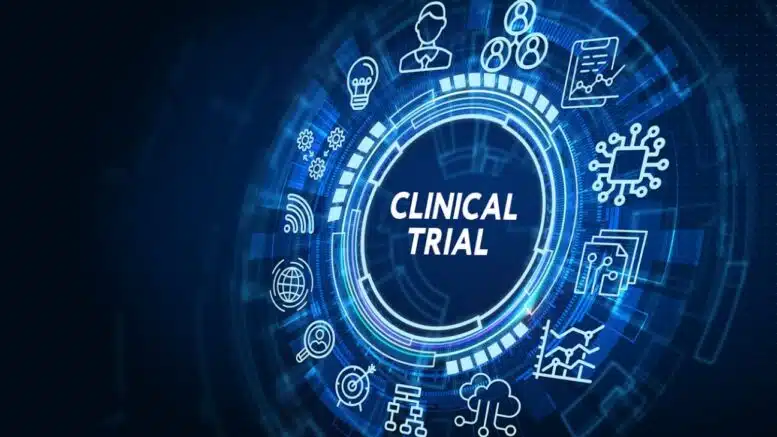The landscape of neurological diseases is vast and varied, encompassing a range of disorders from Alzheimer’s and Parkinson’s to more acute conditions like epilepsy. The development of effective treatments for these diseases hinges on the intricate and detailed processes of early-phase drug development. Central to these efforts are comprehensive medical information and rigorously designed clinical trials.
Nexus of Medical Information
Medical information acts as the bedrock of early drug development. In neurological diseases, understanding the precise mechanisms and pathways at play is crucial. Medical data, gleaned from exhaustive research, not only guides the identification of potential drug targets but also helps in predicting patient responses based on various factors, such as genetics and physiological predispositions. This rich tapestry of information is indispensable for formulating hypotheses about how a new drug will interact within the human body, setting the stage for its translation into clinical trials.
Approaches for Diverse Neurological Challenges
As we delve deeper into the intricacies of neurological diseases, it becomes evident that there’s no one-size-fits-all solution. Each condition, from neurodegenerative disorders like Alzheimer’s to conditions such as epilepsy or migraines, presents unique challenges in terms of both understanding and treatment. This diversity underscores the need for highly tailored drug development strategies. By harnessing rich datasets and leveraging the latest in scientific advancements, researchers are now better equipped than ever to design drugs that target specific molecular pathways or cater to individual patient profiles. This shift towards a more personalized approach not only enhances the effectiveness of the treatments but also minimizes potential side effects, setting the stage for a new era in neurological drug development.
Harnessing Technology for Improved Outcomes
In the fast-evolving world of medical research, technology has been a formidable ally, particularly in the realm of neurological diseases. Neurological disorders, with their inherent complexity, require multifaceted approaches for effective drug development and treatment strategies. Recent advancements in areas such as neuroimaging, computational biology, and genomics have provided researchers with unprecedented insights into the brain’s intricate mechanisms.

For instance, high-resolution imaging techniques like functional Magnetic Resonance Imaging (fMRI) and Positron Emission Tomography (PET) scans have granted scientists a more granular view of neural activity. This allows them to monitor the brain’s response to experimental treatments in real-time, offering invaluable data during the early phases of drug trials.
Moreover, the rise of computational models and machine learning algorithms has brought forth new opportunities in predicting patient responses and optimizing drug formulations. By analyzing vast datasets, these algorithms can identify patterns that might elude human researchers, providing cues for potential drug targets or hinting at unforeseen side effects.
Then there’s the burgeoning field of genomics, which holds immense promise for neurological research. As scientists unravel the genetic underpinnings of disorders like Alzheimer’s or Parkinson’s, they’re gaining insights that can lead to more personalized and effective treatment strategies. This genetic understanding can enable researchers to design drugs that target specific genetic mutations or anomalies, heralding a new age of precision medicine in neurology.
Integrating these technological tools into the early phases of drug development can greatly enhance the efficiency and efficacy of the process. They complement the rigorous medical information and clinical trial frameworks, paving the way for treatments that are not only more effective but also tailored to individual patient needs. As the medical community continues to embrace these technologies, the horizon looks promising for those battling neurological diseases.
Clinical Trials
Clinical trials serve as the linchpin, transforming promising drug candidates into tangible treatments. In neurology, given the intricacies and sensitivities of the nervous system, the design and execution of these trials demand exceptional precision and care.
Herein lies the importance of specialized environments, which provide the requisite infrastructure for such endeavors. Emphasizing a safe and comfortable setting for both patients and healthy volunteers, facilities specializing in early-phase drug development ensure that trial participants are treated with the utmost consideration and respect.
These specialized units are equipped to handle all types of early phase clinical studies. Whether it’s a first-in-human exploration, a proof-of-concept trial, or detailed assessments of single and multiple doses, they are adept at managing the breadth and depth of early-phase clinical research. Studies focusing on bioequivalence, bioavailability, drug-drug and drug-food interactions, as well as PK/PD and tQTc studies, are all within the purview of these specialized facilities.
Early Phase CRO Services
Central to the success of these early clinical trials are the early phase CRO services. These services provide the expertise and logistical support necessary for the seamless execution of trials. By ensuring stringent adherence to protocols, offering sophisticated data analytics, and maintaining robust communication channels, they ensure that the entire process, from drug formulation to patient trials, is optimized for success.
The journey of a drug, especially for complex neurological diseases, from the lab bench to the patient’s bedside, is intricate. It demands the synergy of robust medical information and meticulously planned and executed clinical trials. With the support of dedicated early phase CRO services and state-of-the-art facilities, there’s an ever-increasing promise to bring forth treatments that can significantly alter the course of neurological diseases, offering hope and healing to millions worldwide.
